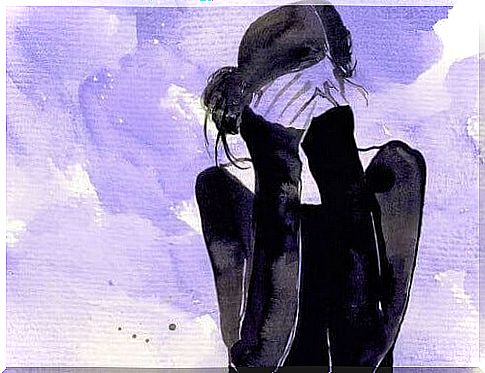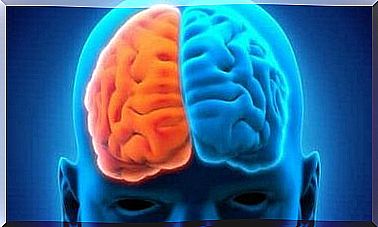Four Differences Between Depression And Sadness

In general, the confusion has to do with the way the terms are used. Yet we are usually able to distinguish between depression and sadness. Sadness is just one of the many symptoms of depression.
Sadness and depression have a lot in common, but at the same time they are two completely different conditions. They are often confused. This can sometimes cause the situation to be misinterpreted or misunderstandings arise.
So, in this article, you can learn how to properly understand and use both terms.
1. Depression is a psychological disorder

The difference between sadness and depression is that depression is a psychological disorder while sadness is just an emotion aroused by a situation that has recently occurred.
Of course, sadness, along with other symptoms such as apathy, anxiety, fear, and hopelessness, is one of the many symptoms that depression can cause.
Sadness is a temporary state of mind that will come to an end sooner or later. Depression is a condition that lasts longer and can lead to a chronic state of malaise.
Experts in the field of psychology believe that a person must suffer from the symptoms of depression for at least six consecutive months to be able to say that they are actually depressed.
Sadness is a temporary mental state
As we mentioned earlier, sadness is a transient state of mind, which can sometimes last longer than expected.
Unlike depression, sadness is a natural psychological response and not a mental illness. This emotion simply arises when we are in a difficult situation or when someone has hurt us and is unfortunately unavoidable.

There is therefore no need at all to stress yourself out when you are sad. It’s a completely normal feeling we get when we lose someone, have to end a relationship, or leave our home, for example.
Sadness indicates that something that meant a lot to us has come to an end or has changed. However, as time goes by, sadness will also pass.
Apathy and Depression
Apathy is a lack of energy and willpower to do anything. This especially affects people who are depressed, making them unable to fulfill their daily responsibilities. For example, a person who is depressed cannot go to work because he cannot get out of bed in the morning.
This is not the case when someone is just sad. Even when we are very sad, we are still able to force ourselves to fully perform our duties and keep our responsibilities, although we may be less enthusiastic or happy about it. Nevertheless, our state of mind does not affect our work and our obligations.
When sadness lingers far too long…

It is indeed true that one can pass into the other. When we stay sad for too long, it can eventually lead to depression.
A sad person cries, has low self-confidence, feels useless, and is hopeless. The whole world is gray to him. When these feelings persist for too long, they can eventually lead to severe depression.
That’s why psychologists prefer to wait a while before diagnosing depression. It is normal to be sad for a day or two, or maybe even a week. However, it is not at all good for someone to remain sad for two months.
As you can see, the differences between sadness and depression are very clear, even though sadness can be a symptom of depression.
Depression and sadness each require its own approach
Of course, it’s important to remember that sadness may not need to be treated or require therapy, but depression does need to be treated effectively.
In the case of sadness, just the support of your family and a different environment may be enough. In the case of depression, the situation is quite different.

So sadness is very different from depression. Perhaps the confusion often arises mainly because we use words like “depressing” and because the word “depression” itself is so widely used. In this case, the word “depressed” has nothing to do with depression. The misuse of these words can make us doubt their true meaning.
Have you ever confused depression with sadness?








